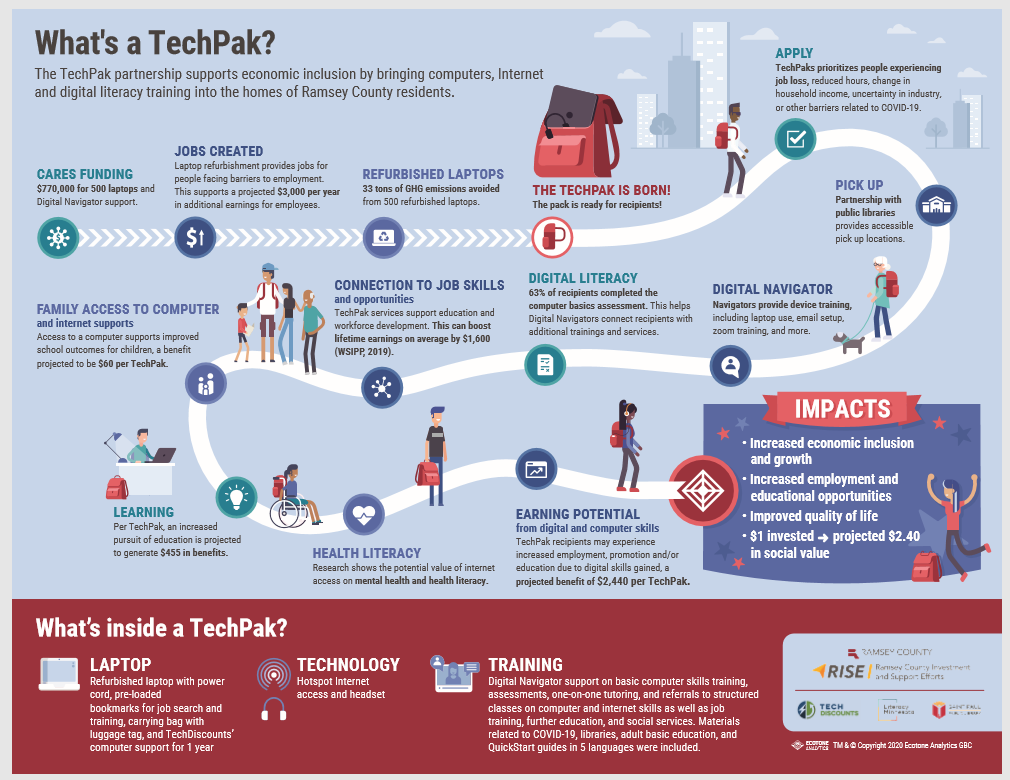Digital Access and Navigation
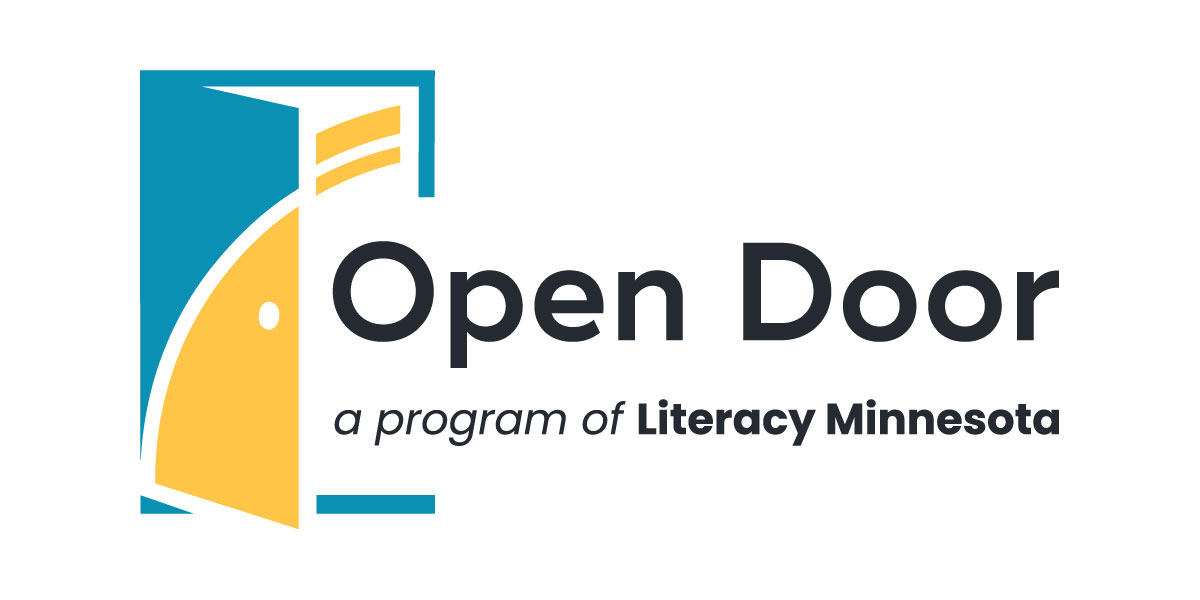
Digital Navigators mentor individuals in using technology and help with getting low-cost internet. For more information on our services contact Susan Wetenkamp-Brandt at [email protected].
- Midway Location: 553 Fairview Ave N, Saint Paul, MN 55104
The Midway digital literacy lab at Goodwill-Easter Seals is coordinated by Manee Thao and open from 10 a.m. to 3 p.m. on Tuesdays and Thursdays.
- Minneapolis Location: 627 W Broadway Ave, Minneapolis, MN 55411
Katey Miller works at the Minneapolis campus facilitating computer labs and Northstar digital literacy classes. The lab is open from 12 p.m. to 2 p.m. Mondays to Thursdays.
.png)
Since 2011, Internet Essentials has connected a cumulative total of more than 10 million people from low-income families to the Internet at home. This program allows qualifying customers to get internet starting at $14.95 per month.
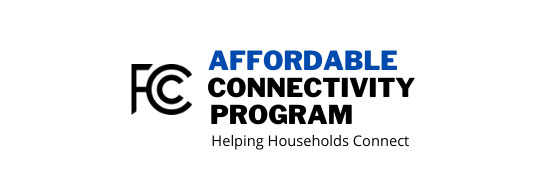
The Affordable Connectivity Program (ACP) was a Federal Communications Commission (FCC) benefit program that helped ensure that households could afford the broadband they need for work, school, healthcare and more. This program was started in December 2021 and ended February 2024 due to loss of funding.
It provided a discount of up to $30 per month toward internet services. Households on qualifying Tribal lands received up to $75 per month. Eligible households could also receive a one-time discount of up to $100 to purchase a laptop, desktop computer, or tablet from participating providers if they contribute more than $10 and less than $50 toward the purchase price.
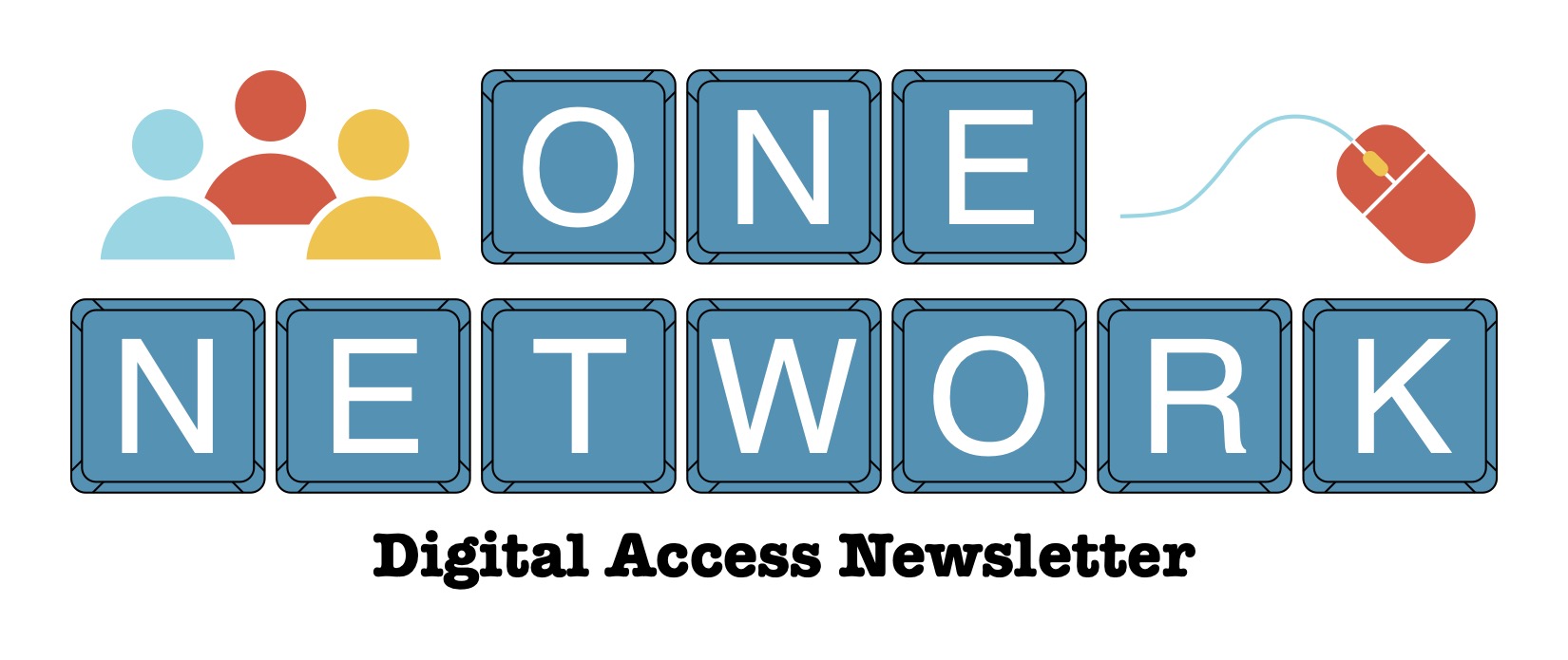
This newsletter provided an overview of the digital opportunity services offered by organizations like Literacy Minnesota and resources for those wanting to know more about digital access.
Join Mailing List
Resources
- Local Organizations
- ELDES Curriculum (Precursor to Northstar)
- National Digital Inclusion Alliance
Newsletter Issues - October 2023 to May 2025
Tech in Your World
March 2024 and May 2025
A digital literacy fair organized by our TEQuity Services Program Coordinator. Attendees had the opportunity to learn about technology services of local organizations and Comcast's low-cost internet program, Internet Essentials.
DIGIDAZE
July 2023
A few of our digital literacy staff members represented Literacy MN at a local event called DigiDaze. We had lots of people come through, including some boys who stopped to check out our typing practice activity.
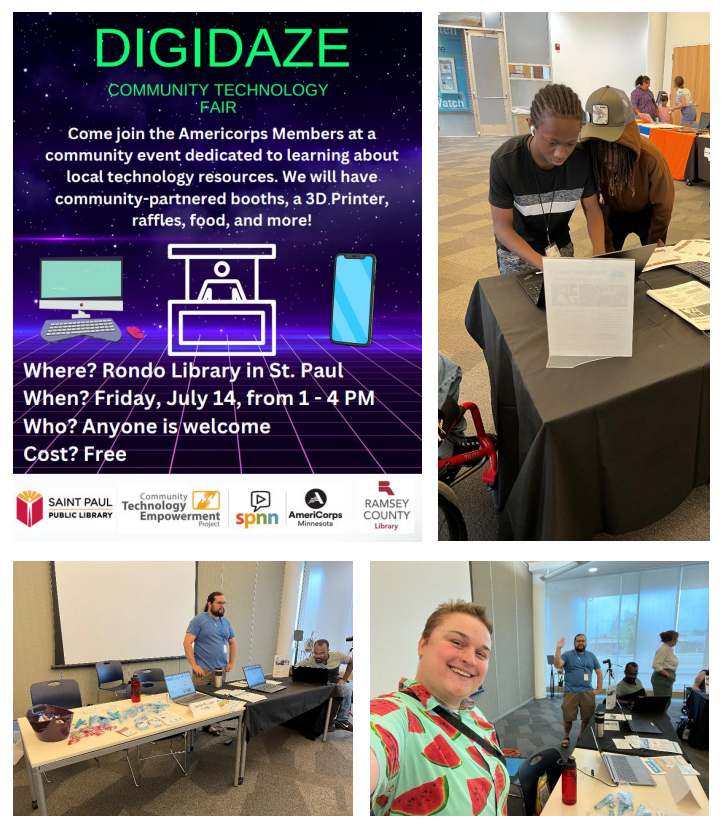
Cassandra - Digital Literacy Learner
"I was furloughed in March. I came in uncertain – things were changing with the pandemic. Northstar gave me more of a focus. It gave me something to look forward to. A motivator. I like that I have the flexibility of doing it at home. It’s less stressful. I recently applied for a manager position. After the interview, I got the pre-employment package and a $100 bonus to refer someone! I am glad this program is here. The staff were so helpful. I can testify – it made me more comfortable with my computer skills. Such a good feeling!"
Send us your story!
In 2020, Ramsey County partnered with Literacy Minnesota, Repowered (Formally Tech Dump), Saint Paul Public Libraries, PCs for People, and other community organizations to provide computers, internet and digital literacy training to more than 500 residents impacted by COVID-19. Digital Literacy Navigators from Literacy Minnesota supported each participant by facilitating computer pick-up, digital literacy assessments and learning using Northstar, and information technology (IT) support. They also referred participants to classes, job searches and workforce training. For every $1 spent on the TechPak initiative, there was a social return on investment of $2.40 generated through improved earnings, well-being and cost savings.
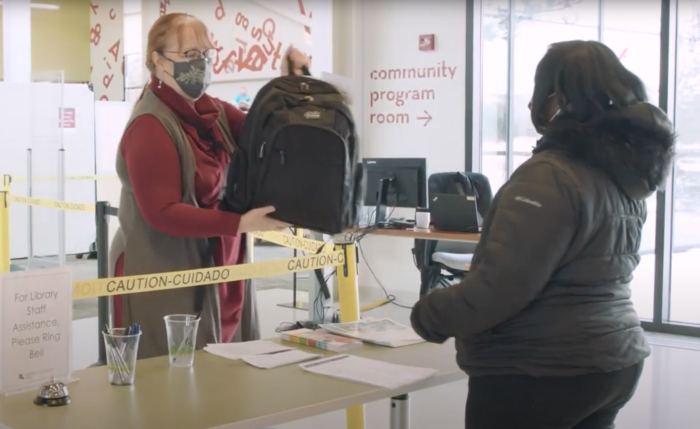
Tech Dump and Tech Discounts is now called Repowered.
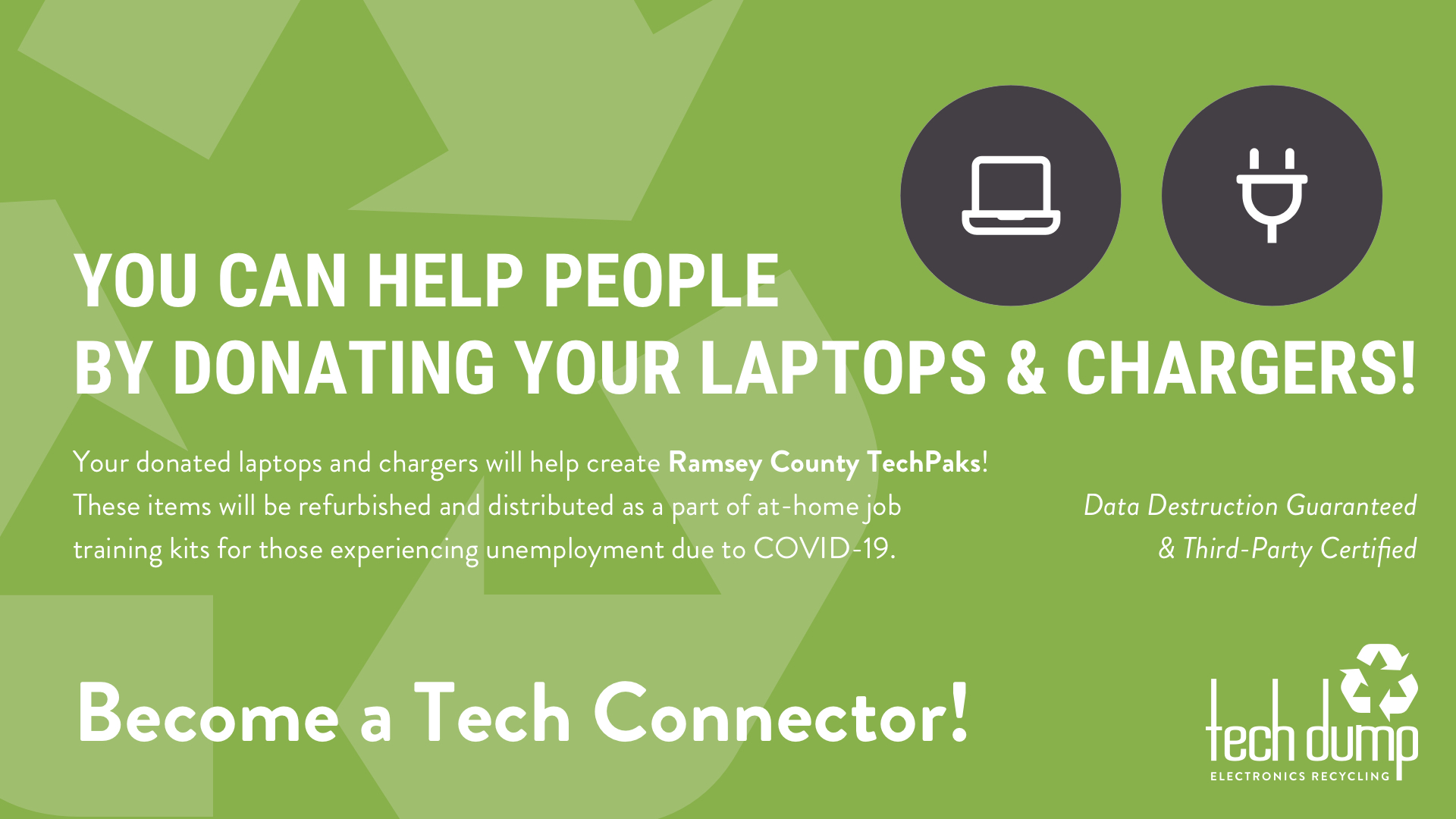
MDE Digital Equity Project
The Minnesota Department of Education selected Literacy Minnesota to create a Community Needs Assessment Report that identifies and assesses actions taken to close the digital divide across the state since March 2020.
The Report was funded by the Coronavirus Aid, Relief and Economic Security (CARES) Act, the $2.2 trillion economic stimulus bill passed by the 116th U.S. Congress in response to the economic fallout of the COVID-19 pandemic and recession, and completed in December 2020.
Digital Equity Community Needs Assessment Report
Executive Summary
The Minnesota Department of Education (MDE) selected Literacy Minnesota to create a Community Needs Assessment Report (the Report) that identifies and assesses actions taken to close the digital divide across the state since March 2020. The project was funded by the Coronavirus Aid, Relief and Economic Security (CARES) Act and completed in December 2020.
The Report draws on data from the U.S. Census Bureau, extensive outreach, an original Digital Equity Community Needs Assessment survey (Survey) and Literacy Minnesota’s nearly 50 years of work in Adult Basic Education. The Report answers the following questions:
I. What counties have high digital access, economic, education and English language learning needs?
II. How have organizations adapted to the pandemic and addressed digital access needs in their communities, who do they serve, and which counties are served?
III. How would a statewide Digital Navigator Program complement available resources and sustainably solve persistent problems?
The Report documents:
- A ranking of Minnesota’s 87 counties with respect to high-priority access, economic, education and language needs identified by MDE; a county map can be found here.
- Nobles County, a nonmetro county located in southwest Minnesota, is the only county in Minnesota where all high-priority needs are present, an additional 35 counties have at least three of six high-priority needs and 84 counties have at least one high-priority need.
- A Survey sent to broadband providers, community organizations, government agencies, libraries, nonprofits and schools with 294 responses found that most service providers saw a decrease in participants due to digital equity issues despite adding services.
- Although rural counties face barriers to digital equity not found in urban counties, more organizations address the digital divide per capita in nonmetro counties than metro counties in Minnesota, and more digitally disenfranchised people live metro counties.
- A statewide Digital Navigator Program in Minnesota would require an estimated 200 digital navigators hosted at community-based organizations, libraries and other trusted organizations, and would serve an estimated 80,000 participants in need of navigation.
- The role of the digital navigator is to empower participants in the Digital Navigation Program by connecting them to available community resources, providing them one-on-one digital literacy instruction and helping participants set and achieve their goals.
- Evaluating the efficacy of the statewide Digital Navigator Program would require an equity lens, survey Program participants, track progress using Northstar Digital Literacy assessments and utilize third-party analysts when possible.
The Report finds that a statewide Digital Navigator Program represents one way to address the digital divide in Minnesota. The Report recommends a Digital Equity Initiative that would connect people in need to a device, the internet and digital literacy skills. The Initiative would reduce civic, economic and educational disparities across the state. Diverse and divergent stakeholders would have to be brought together to coordinate the Digital Equity Initiative, and its leader must have the capacity to bring broadband providers, community-based organizations, corporations, libraries and schools into dialogue with local government officials about solving problems in their communities including the problem of digital disenfranchisement, which the crises of the COVID-19 pandemic and economic recession have aggravated, exacerbated and expanded.

